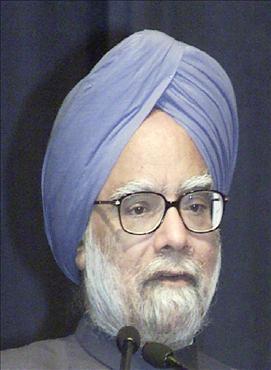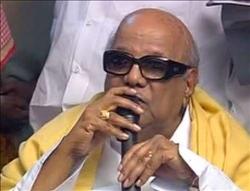After initial resistance, Hosni Mubarak, President of Egypt for almost 30 years, agreed to step down. Reports suggested that the Egyptian Army supported the mass movement.
India is no stranger to political leaders who stay in power for decades with no plans to make way for others. Worse, quite often a powerful leader steps aside only to make way for his son or protégé.
 India and Egypt have ancient societies in which a strong streak of feudalism and personality dominance are common. We should not forget that modern ideas of democracy or individual rights did not originate in these parts of the world. Their entry is, relatively speaking, recent and the development can be attributed mostly to the influence of Western countries, particularly UK and the US.
India and Egypt have ancient societies in which a strong streak of feudalism and personality dominance are common. We should not forget that modern ideas of democracy or individual rights did not originate in these parts of the world. Their entry is, relatively speaking, recent and the development can be attributed mostly to the influence of Western countries, particularly UK and the US.
Considering India’s social history, it is not surprising that politics is dominated by personalities rather than institutions or ideologies. The reception that (Congress Party General Secretary and son of Sonia and the late Rajiv Gandhi) Rahul Gandhi routinely gets in rural communities is a reminder of the power of personal affinities, if we needed one.
Imperfect Democracy
At the same time, India has adopted and practiced the democratic model for more than six decades now with varying degrees of imperfection. An important challenge is to resolve the tension between feudalistic tendencies that are still strong with democratic values that the society cherishes.
Achieving progress is, to some extent, in the hands of the leadership. In an ideal world, our leaders would be cultivated to voluntarily give up office after holding them for a specific period.
But we do not live in an ideal world.
Jyoti Basu of the Community Party of India (Marxist) stepped down from the office of Chief Minister of West Bengal in 2000 after 23 years.
There are two issues here. Firstly a single party holding office for this long is not good for the democratic principle, which considers constant changes in leadership as a healthy feature. Secondly, it is a fact that even a cultivated politician like Mr Basu continued in office for more than two decades. It is equally true that political parties pressurise leaders to remain in office, just as the Bharatiya Janata Party did in the case of (Prime Minister) Atal Behari Vajpayee.
 The Dravida Munnetra Kazhagam (DMK) in Tamil Nadu is another example. Muthuvel Karunanidhi has been the Party’s President since Founder Canjeevaram Natarajan Annadurai died on February 3, 1969.
The Dravida Munnetra Kazhagam (DMK) in Tamil Nadu is another example. Muthuvel Karunanidhi has been the Party’s President since Founder Canjeevaram Natarajan Annadurai died on February 3, 1969.
The erratic record of the Party in elections (it was almost wiped out in the 1991 elections) has not shaken Karunanidhi’s hold on the party.
In 1972, he ousted the late M G Ramachandran who went on to establish the All Indian Anna DMK in 1973. More recently, he successfully engineered the exit of Vaiko, another contender for the top position. Now almost invalid Karunanidhi, at 86, is still the Party President and Chief Minister. He has anointed his son M K Stalin as the Deputy Chief Minister. This is a telling case of feudalism in conflict with democracy.
To the west of Tamil Nadu is Karnataka with its Deve Gowda family.
The recent events in Egypt, in particular the spontaneity of the movement to oust Mubarak, are significant from the perspectives outlined above. They suggest the retreat of the feudalistic tendencies that have historically characterised societies like India and Egypt. The developments offer some ground for cautious optimism about the strengthening of the democratic principle and the relative undermining of the feudal element.
The US example
A possible solution is in voluntary action by the leaders. Another route is legal reform. Here, the US offers a precedent. American Presidents are by law prohibited from holding office for more than two terms of four years each. The constitutional amendment was inspired by the experience with Franklin Roosevelt, who was elected four times and died in office.
India can consider legal amendments that promote the democratic principle of its constitution and check entrenched and self-perpetuating political leaderships.
This would also help in reducing the average age of India’s leadership, often dominated by septuagenarians and octogenarians. It can give the younger generation a better chance while they still have energy and some idealism left in them.
Palladam Madhavrao Vasudev is Assistant Professor of Common Law at the University of Ottawa in Canada. Until recently, he was Senior Lecturer on the same subject at the University of Auckland Business School.






